🌍📰 Your source for the latest international news.
Stay informed with real-time updates from around the globe.
#GlobalNews #WorldEvents #InternationalHeadlines
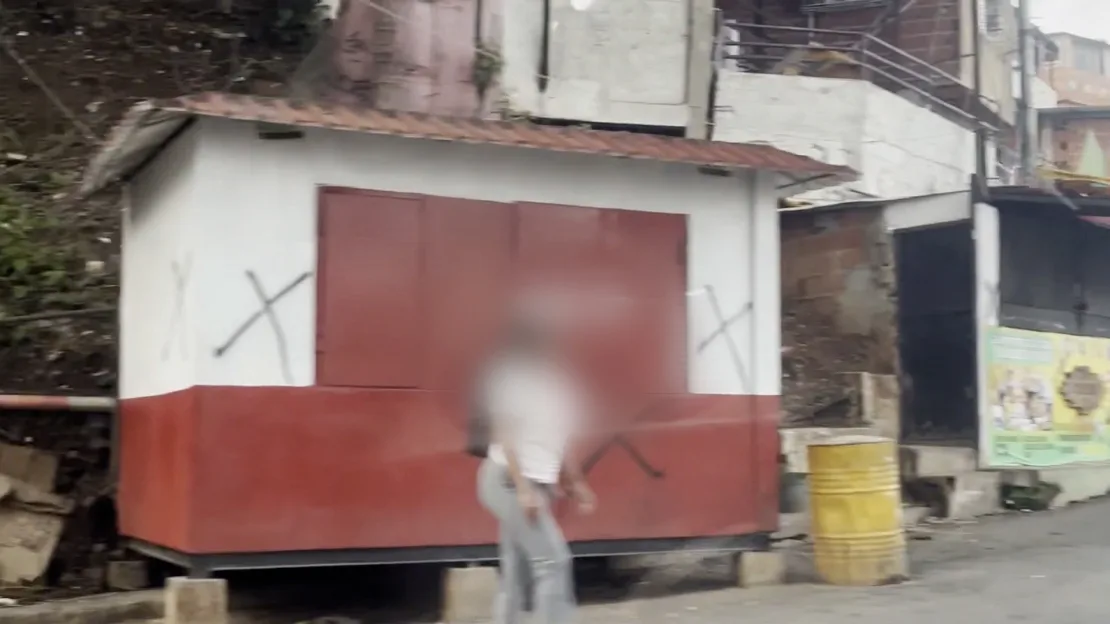
A black X is appearing on the doors of Maduro opponents in Venezuela
In a poor Caracas neighborhood, the letter “X” is appearing on people’s homes – crude chest-high slashes of paint that residents say amount to a threat.
Residents living in 23 de Enero, once the stronghold of the late Venezuelan President Hugo Chavez, believe pro-regime paramilitary groups are behind the spray paint. The groups, known as colectivos, are marking people who had protested the outcome of July’s presidential election, residents told CNN.
“There are some fifty homes in my street, and thirty-two have been marked,” said one resident, who asked to use the alias “Pablo”, due to fear of retaliation for speaking out.
The Xs appeared in Pablo’s neighborhood days after Venezuela’s President Nicolás Maduro claimed victory at the polls on July 28 – a result disputed by the opposition and questioned by foreign observers.
Members of a Venezuelan paramilitary unit took photos of his neighbors as they stood outside their homes and called for Maduro to step down by banging pots. The next morning, “we woke up and all the houses were marked with a cross,” Pablo said.
Pablo told CNN he could hear the painting on his own door in the middle of the night, the rattle and spray waking him up from his sleep.
“The following days, they would ride around the street saying this mark is for cowards and that they would come back with guns if anyone protested,” he said.
Paramilitary groups have historically been used by the Maduro regime to intimidate or attack opposition supporters. In many of Caracas’ poorest neighborhoods, they are the only law.
CNN is attempting to contact Valentin Santana, the leader of one of the most notorious colectivo, La Piedrita, for comment.
Another resident of the same neighborhood said her home was not grafittied, but that she is now too intimidated to join planned anti-government protests on Saturday. She is fearful of a crackdown by the government, which has already detained hundreds of opposition supporters for protesting against Maduro or casting doubt about his disputed victory.
She says that paramilitary groups have installed surveillance cameras in her area, and she does not know who to trust. The Venezuelan government recently repurposed an app originally intended to report public administration malfunctions to allow anonymous charges against opposition supporters.
“This is the app to snitch on the fascists,” Maduro himself told a recent rally, presenting the new service. It has since been blocked on Apple’s App store but is still available on Google Play.
She believes that about 80% of the area she lives in would be in favor of Venezuela’s political opposition – but are too intimidated to make their voices heard.
“A couple days after the election, two young protesters were taken away, there’s no trust among neigbhbors also because of the app,” Valentina said.
A pattern of repression
Venezuelans have felt this fear before. In 2019, when opposition leader Juan Guaido declared himself to be the interim president of Venezuela, with widespread popular support, motorcycle riding colectivo members terrorized anti-government rallies with gunfire and prevented opposition lawmakers and journalists from entering the National Assembly.
That pattern of repression appears to be ramping up today.
Pablo accuses colectivo members of making threats, such as being taken to prison, blacklisting for vital government benefits for cheap gasoline and food handouts. There have also been threats of overt violence in the past few days, though he maintains he will keep protesting.
“Going to jail, that is scary, because at my age that almost certainly means dying in jail. But I don’t want to stop, people are angry… I am very angry, furious,” Pablo, who is in his seventies, told CNN.
Such accounts echo the warnings of opposition leader María Corina Machado, who told CNN’s Christiane Amanpour on Tuesday that Maduro is “exercising violence on innocent people” in the aftermath of the disputed vote.
“Young people are [taken] out of their houses, houses are marked with a cross at their doors. Journalists have been detained, four of them have been accused of terrorism. This is happening as we speak,” she said.
Since the contested election, Maduro has been at the forefront of the government crackdown, ordering the opening of two new prisons to accommodate detained protesters and openly calling for everyone in the streets to be imprisoned.
Maduro has also endorsed what is informally referred to as “Operation Knock-Knock,” that has seen security services knocking at opposition members’ doors.
“Knock Knock! Don’t be a crybaby… You’re going to Tocorón (a jail)” Maduro shouted at a rally last week.
Even after Venezuela’s electoral and judicial authorities announced the victory of Maduro, they have not shown detailed results and electoral records to support it, prompting anger and concern across the country and abroad.
Meanwhile, the team of opposition candidate Edmundo Gonzalez Urrutia has released independently collected polling station data that, although partial, appears to suggest that Maduro lost.
Numerous countries say they will not recognize the official election result until the vote tallies are published in full.
In a report shared Tuesday, a panel of experts from the United Nations said the presidential election lacked “basic transparency and integrity.” They also strongly criticized the National Electoral Council (CNE) for announcing the winner without revealing the tabulated results from each of the country’s polling stations, saying it had “no precedent in contemporary democratic elections.”
“The note … from the UN is giving us a lot of hope. The world must know that we have a neo-Nazi for president,” Pablo said.
Read More...
1 year ago
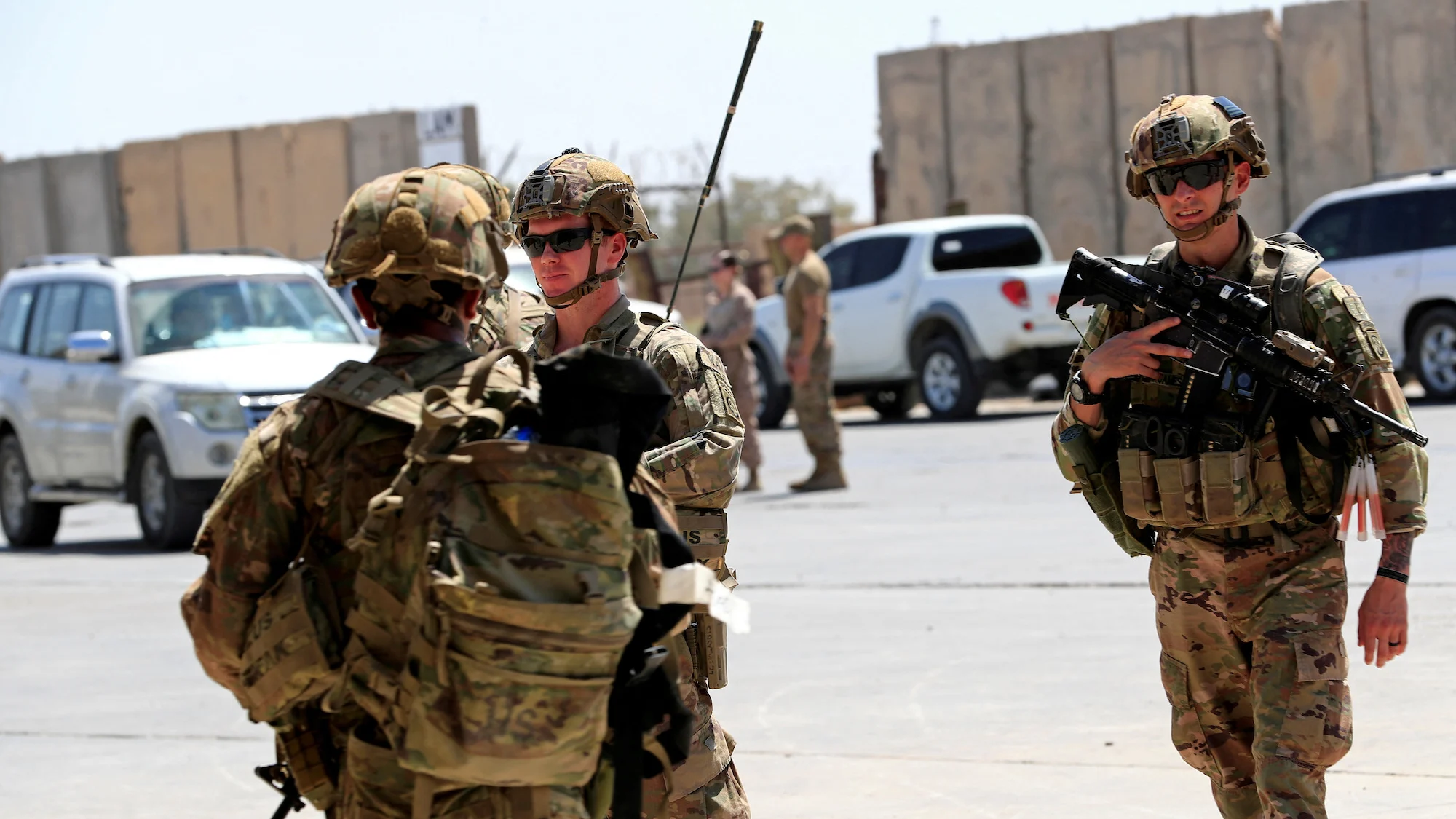
Iraq postpones plans for US troop withdrawal amid regional tensions
Iraq has postponed announcing an end-date for the US-led military coalition’s presence in the country due to “recent developments,” raising questions about the future of US military presence in the Gulf state amid heightened tension in the region.
Iraq’s Higher Military Commission had aimed to propose an end date for Operation Inherent Resolve, the US military operation combatting terror group ISIS.
“We were very close to announcing this agreement, but due to recent developments, the announcement of the end of the international coalition’s military mission in Iraq was postponed,” a statement by Iraq’s foreign ministry said Thursday, without giving further details on what the “recent developments.”
Tensions are mounting in the region as Israel and the United States brace for a potential Iranian attack on Israel to avenge the killing of Hamas’ political leader Ismail Haniyeh in Tehran last month. Iran blames the assassination on Israel, which has not confirmed or denied responsibility.
Iran-backed militias in Iraq are pressuring the Shia-led government to end the US troop’s presence in Iraq.
Several powerful militias in Iraq have stepped up attacks on US sites in the country since October 7, saying in support of people in the Gaza Strip, where they view the US administration as one of Israel’s main allies. In response, the US has launched retaliatory airstrikes inside Iraq targeting the groups.
The US has roughly 2,500 troops currently in Iraq who have been operating there in an “advise and assist” capacity since December 2021, when the US military announced the end of its combat role in the country.
#news #worldnews #cnn
Read More...
1 year ago
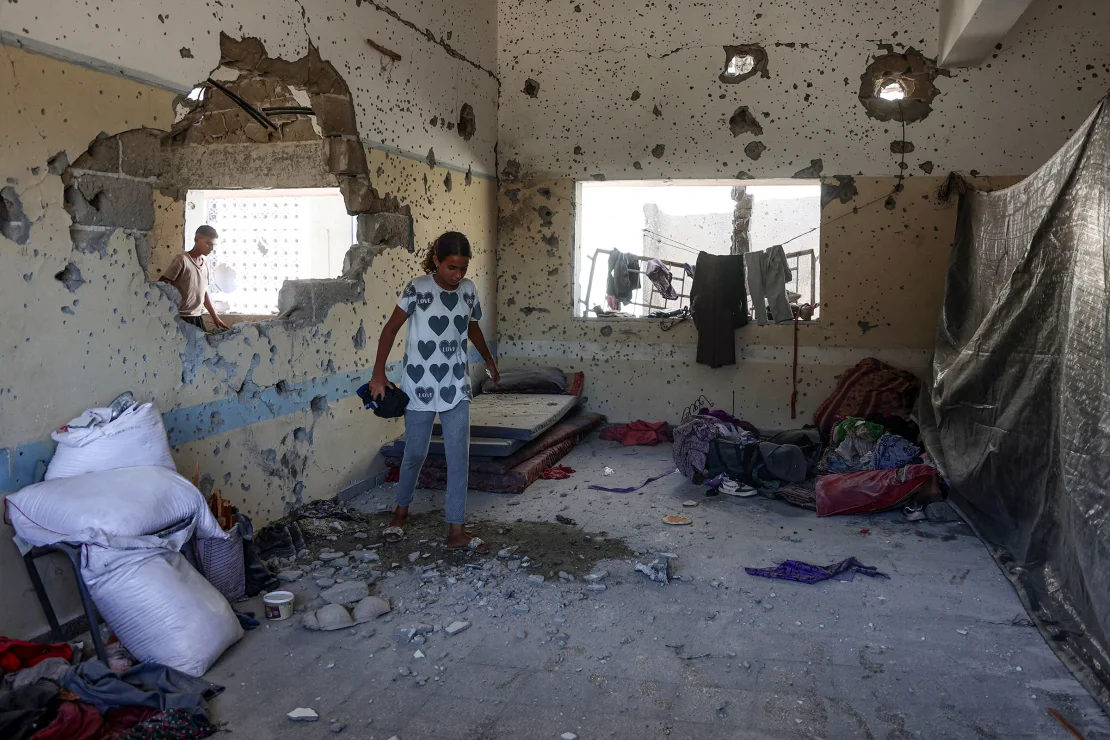
High-stakes Gaza ceasefire talks have ended. Here’s what to know
The death toll in Gaza since Israel started its war against Hamas passed 40,000 this week, just as mediators arrived in Doha to discuss a ceasefire. Abed Rahim Khatib/dpa/picture alliance/AP/File
Editor’s Note: A version of this story appears in CNN’s Meanwhile in the Middle East newsletter, a three-times-a-week look inside the region’s biggest stories. Sign up here.
CNN
—
Mediators in talks for a ceasefire agreement between Hamas and Israel made a last-ditch effort this week to revive stalled negotiations, with high-stakes discussions wrapping up Friday against a backdrop of tension and desperation in the region.
The meeting in Doha started on Thursday and has now ended, a diplomat familiar with the discussions told CNN. A breakthrough wasn’t expected but efforts will continue. Technical teams will meet again in the coming days, starting Saturday, until the main figures meet again in Cairo next week, the diplomat said.
It took place as the Middle East braces for a possible Iranian attack on Israel, and after the death toll since October in Gaza reached 40,000 people, a bleak figure that underscores 10 months of suffering, malnutrition and despair in the enclave.
The fear of an Iranian attack poses a serious threat to any hopes of a ceasefire that have already appeared tenuous in recent weeks, after Israeli strikes took out Hamas’ former political leader and senior figures in Lebanese militant group Hezbollah.
But the talks went ahead, despite some initial fears they would be scrapped. Participants on Thursday included CIA director Bill Burns, Mossad chief David Barnea, Qatari Prime Minister Sheikh Mohammed bin Jassim Al Thani and Egyptian intelligence head Abbas Kamel, a diplomatic source close to negotiations told CNN.
In the meeting, Qatar, Egypt and the United States were expected to present a plan to implement a deal that could bring about a ceasefire in the war in Gaza and free the remaining Israeli hostages held by Hamas. The deal was proposed by US President Joe Biden in May – but unresolved differences have left the path forward unclear.
Here’s what we know about the status of the talks.
People protest in Tel Aviv ahead of the latest round of talks, calling for a deal that would secure the release of Israeli hostages held by Hamas in Gaza.
People protest in Tel Aviv ahead of the latest round of talks, calling for a deal that would secure the release of Israeli hostages held by Hamas in Gaza. Florion Goga/Reuters
What happened in the talks?
Mediators presented a bridging proposal to Israel and Hamas to close the remaining gaps of disagreement between both sides, a joint statement between the US, Qatar and Egypt said on Friday after talks wrapped up for the week.
The statement, published by the Egyptian presidency and Qatari foreign ministry, said the proposal presented to both sides “builds on the areas of agreement over the past week,” and “bridges remaining gaps in a manner that allows for a swift implementation of the deal.”
The talks were “serious and constructive,” the statement said.
video
Related video
Hear from woman who’s husband is still held by Hamas
But the statement did not elaborate on what points of agreement were achieved over the past week.
Hamas had said it would not participate in talks but engaged separately with Qatari and Egyptian mediators, a source told CNN, adding that the mediators are still working to bridge the gap on the remaining key differences.
“Our position was clear… we will not go for new negotiation rounds. We will only go to implement what has been agreed on,” Basem Naim, a member of the Hamas political bureau, told CNN on Tuesday.
On Thursday, the militant group reiterated that there will be no hostage deal or ceasefire agreement without a complete withdrawal of Israeli troops from Gaza.
What is Biden’s proposal?
In May, Biden laid out a three-phase proposal the administration said was submitted by Israel that would pair a release of hostages from Gaza with a “full and complete ceasefire” and a release of Palestinian prisoners held in Israel.
The first phase would last six weeks and include the “withdrawal of Israeli forces from all populated areas of Gaza” and the “release of a number of hostages, including women, the elderly, the wounded in exchange for the release of hundreds of Palestinian prisoners” and the implementation of a temporary truce.
Related article
More than 40,000 Palestinians have been killed in 10 months of war in Gaza, health ministry says
Phase 2 would allow for the “exchange for the release of all remaining living hostages, including male soldiers” and a permanent end to the fighting.
In Phase 3, a “major reconstruction plan for Gaza would commence and any final remains of hostages who’ve been killed will be returned to their families,” the US president said.
Israel launched its war against Hamas after the group’s cross-border October 7 attacks, in which more than 1,200 Israelis were killed and 250 taken hostage, according to Israeli authorities. More than 100 of those hostages remain in Gaza, their families back home pleading for a breakthrough to secure their safe return. It is unclear how many of the original hostages set for release are still alive.
Hamas and Israel have been engaged in tedious negotiations for months. Officials from Qatar and Egypt act as intermediaries, delivering messages to Israeli and Hamas representatives in shuttle-style diplomacy since representatives from the warring parties are not present at the same location. Technical teams have flown in and out of Doha and Cairo to iron out details for a potential agreement.
What are the key remaining sticking points?
Despite an initial positive reaction from Hamas and Israel, both sides failed to agree on the implementation of the finer details of the proposal including the sequencing of the hostage-prisoner exchange, the number of Palestinian prisoners to be released and how far back Israeli forces should withdraw in Gaza.
Israeli Prime Minister Benjamin Netanyahu has been accused of undermining the deal as far-right members of his ruling coalition threaten to collapse the government despite pressure from the US and families of hostages.
Throughout the war, the prime minister has been caught between two potent political forces: the far-right members of his governing coalition who have been opposed to any suggestion that Israeli troops should leave Gaza, and the relatives of hostages held by Hamas, who have formed a powerful pressure group and have implored Netanyahu to reach a deal.
Last month, the prime minister reversed on a key Israeli concession in ceasefire negotiations, demanding that armed men be barred from returning to northern Gaza during an eventual ceasefire, an Israeli source familiar with the talks told CNN. Israel had previously agreed to allow Palestinians unrestricted access to northern Gaza.
Netanyahu’s office on Tuesday rejected claims that the prime minister had changed positions, saying his most recent stance “does not introduce extra conditions and certainly does not contradict or undermine” the May proposal. Netanyahu’s office instead accused Hamas of adding unrealistic demands to its position.
A regional diplomat familiar with the negotiations told CNN that the remaining sticking points for Hamas are Israel’s restrictions on the movement of people from southern Gaza to the north, its demand for a veto over which Palestinian prisoners would be released, as well as its continued presence at the Philadelphi corridor and the Rafah border crossing with Egypt.
The diplomat spoke on condition of anonymity due to the sensitivity of the matter.
What is Hamas’ position?
US officials had said that talks had reached an advanced stage until Hamas’ political leader, Ismail Haniyeh, was killed in Tehran in late July in an assassination Iran blamed on Israel. Israel hasn’t confirmed or denied responsibility, but Iran has vowed vengeance.
There were concerns that the assassination would throw a wrench in the negotiations between Israel and Hamas. The militant group replaced Haniyeh with Yahya Sinwar, the hardline Hamas leader in Gaza who is one of Israel’s most wanted men. While Haniyeh, a relative moderate, lived in Qatar and was susceptible to pressure from his host country, Sinwar is believed to be deep underground in a tunnel in Gaza and is hard to reach.
Hamas on Thursday denied it was having difficulty communicating with its leader Sinwar, after one of its top officials Osama Hamdan reportedly acknowledged in an interview with the Associated Press on Tuesday that there are “some difficulties” and delays in communicating with him.
Hamas hasn’t ruled out an agreement with Israel, but said that it won’t engage in further negotiations. It instead asked mediators for a plan to implement a ceasefire proposal put forward by Biden.
A Hamas source told CNN on Wednesday that the group has adopted a position of “intentional ambiguity” over whether it will attend ceasefire talks, adding that its position on a potential ceasefire is firm whether not it attends the talks.
Asked why Hamas has been unclear about whether it will attend the ceasefire talks, the source said: “This ambiguity is the movement’s position, which was announced in its latest statement, is intentional and did not come by chance. It comes as a result of Netanyahu’s behavior.”
Why is this round of talks so important?
This latest round of ceasefire talks were the result of a major diplomatic effort by mediators Qatar, Egypt and the US to push for a last-ditch effort to end the war and free the hostages as Iran prepares to attack Israel.
The urgency of the talks was highlighted by the three mediators, who issued a rare joint statement last week calling on the warring parties to return to negotiations and offered what they called a “final bridge proposal” to overcome the remaining sticking points. The details of that proposal have not been made public.
In parallel, US and Middle East diplomats have been mobilizing to dissuade Iran from launching an attack on Israel that could lead to a wider regional war. Both Iran and the US have said that that lines of communication between them are open through intermediaries.
There have been some indications that Iran may abandon plans to attack Israel if a ceasefire deal is reached. But the country’s mission to the United Nations said on Saturday that Tehran’s retaliation is “totally unrelated to the Gaza ceasefire.”
As of Tuesday afternoon, US officials didn’t believe that Iran has decided on a course of retaliatory action against Israel, according to two US administration officials. Furious diplomatic backchannel efforts are ongoing to try to deter a wide-scale attack and de-escalate the volatile situation, one of those officials said.
The second official added that the Biden administration does believe that the US’s public warnings in recent days have affected Iran’s calculus.
The conversation between Al Thani and Kani was “positive,” a diplomat familiar with the call said.
Biden acknowledged the challenges facing a ceasefire deal Tuesday, telling reporters traveling with him to New Orleans he’s “concerned” about negotiations between the two parties amid the looming threat of an attack on Israel from Iran.
The president rebuffed questions on what he’s doing to pressure Israel and Hamas to come to the bargaining table for proposed ceasefire deal talks Thursday, telling reporters, “If I told you what pressure that I’m putting on it, it wouldn’t be very much pressure would it?”
The regional diplomat who spoke to CNN said there is concern that Iran may not hold back on striking Israel, as the diplomat believes the Biden administration is not applying enough pressure on Netanyahu to reach an agreement.
The lack of clarity on whether the Israeli prime minister will adhere to Biden’s May proposal, the source added, suggests time is running out to strike a deal before an Iranian attack. Qatar and Egypt, the source said, may not have enough influence to push Hamas to compromise.
Read More...
1 year ago
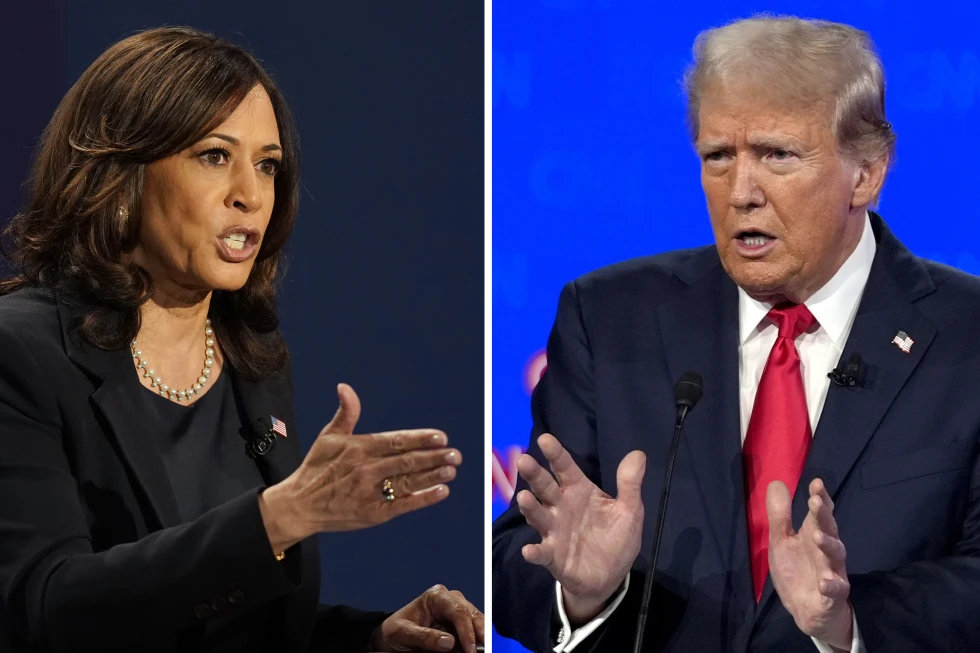
Game on: ABC News says Harris, Trump have agreed to presidential debate on Sept. 10
ABC News says that both Republican presidential nominee Donald Trump and his Democratic counterpart, Kamala Harris, have agreed to meet in a debate on Sept. 10.
The network’s announcement on Thursday came shortly after Trump told a news conference that he had agreed to three debates with Harris in September on separate networks.
Trump is rejoining the ABC debate days after posting on his social media network that he would not appear on the network, citing a lawsuit he has filed. His decision sets up a highly anticipated moment in an election where the first debate led to a massive change in the race — with Democratic President Joe Biden ending his reelection bid and endorsing Harris.
“I think it’s very important to have debates,” Trump said Thursday. “I look forward to the debates because I think we have to set the record straight.”
On the social media site X later on Thursday, Harris wrote that “I hear that Donald Trump has fully committed to debating me on September 10. I look forward to it.”
At a private fundraiser in Paris on Thursday, Harris’ husband, Doug Emhoff, said he “cannot wait” to see his wife debate Trump. He was in Paris as head of the U.S. delegation to the Summer Olympics closing ceremony.
Fox News has also proposed a debate between Harris and Trump to take place on Sept. 4, and NBC News is angling to air one on Sept. 25. During an appearance in Michigan, Harris said she was “happy to have that conversation” about an additional debate.
Trump also said he wants his vice presidential candidate, JD Vance, to debate Harris’ choice for veep, Minnesota Gov. Tim Walz, on CBS. The network is discussing potential dates to propose for that meeting.
ABC says that David Muir and Linsey Davis will moderate the Sept. 10 contest. That’s the same date that Trump and Biden had agreed to their second and final debate, before Biden’s decision put that event in doubt.
Any debate promises to take on extra importance with polls showing a tight race between the former president and current vice president. While Harris has ridden a wave of excitement among Democrats since inheriting the mantle from Biden, she has yet to appear at a news conference or give an interview to a journalist.
Republicans are already making that an issue. Vance, in a post on X as Trump was in his news conference on Thursday, said Harris was hiding behind a TelePrompter. “It’s been 18 days since she answered real questions from the media,” he wrote.
Read More...
1 year ago
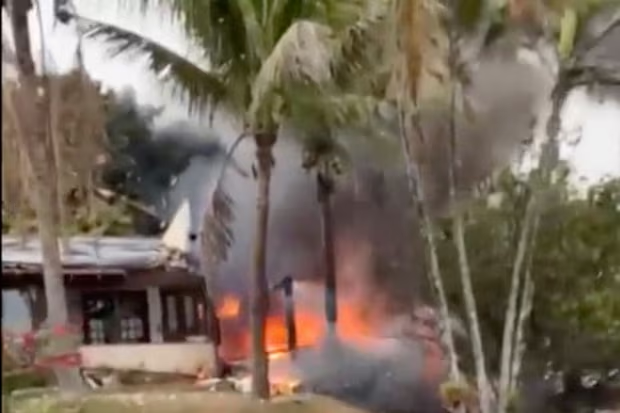
No survivors from plane that crashed in Brazil with 61 people on board, officials say
The Voepass aircraft crashed into a residential area, although there were no reports of casualties on the ground
A passenger plane with 61 people on board has crashed in a fiery wreck in Brazil’s São Paulo state, killing all passengers and crew.
The airline Voepass initially reported 62 people had been on the plane but later revised the figure to 61, confirming the deaths of all 57 passengers and four crew members on board.
“At this time, Voepass is prioritizing provision of unrestricted assistance to the victims’ families and effectively collaborating with authorities to determine the causes of the accident,” the company said in a statement
“There are no survivors,” Col Emerson Massera of the Brazilian military police told reporters at the crash site in the city of Vinhedo late on Thursday.
Massera said the fire had been brought under control, but about 50 firefighters were still working to cool down the area. “It’s a very sad scene; our work now is focused on clearing the area so that the investigation and identification of the bodies can proceed,” he said.
The ATR-72 turboprop plane was en route from Cascavel, in the state of Paraná, to Guarulhos, in São Paulo, when it crashed in a residential neighbourhood about 76km away from the state capital.
No casualties were reported on the ground, according to Col Cassio Araújo de Freitas, the general commander of the military police, who said: “We have no reports of any other victims besides those on the aircraft.”
According to the Flight Radar website, the plane was traveling at 17,000ft before plunging 4,000ft in two minutes, and then its signal was lost.
Video shared on social media showed the plane spiraling out of control as it plunged down into a cluster of trees, followed by a large plume of black smoke.
Another clip showed flames and smoke coming from the plane fuselage where it had apparently plowed into the side of a house. Burning debris and at least one body could be seen strewn across the gardens of a residential area, while emergency vehicles arrived.
Ana Lúcia de Lima, who lives nearby, told the UOL news website that the noise was so loud it “sounded like it was falling into my house … The first blast was strong, there was already dark smoke coming out, and then there were several more explosions.”
Another resident, Daniel de Lima, said he heard a loud noise before looking outside and seeing the plane in a horizontal spiral.
“It was rotating, but it wasn’t moving forward,” he told Reuters. “Soon after, it fell out of the sky and exploded.”
The Brazilian air force and the federal police sent teams of investigators to the site.
The head of the air force’s Aeronautical Accident Investigation and Prevention Centre, Brigadier Marcelo Moreno, said that there was no timeline for the investigation to be completed. He said: “It is still very premature to say anything.”
But he said it was already clear that “there was no communication from the aircraft to the control authorities indicating an emergency”.
Voepass stated that the aircraft had taken off “without any flight restrictions, with all its systems functioning properly for the operation”.
Speaking at an event in southern Brazil on Friday afternoon, just minutes after the accident, the president, Luiz Inácio Lula da Silva, called for a minute of silence for those lost in the crash.
#news #brazil
Read More...
1 year ago

Harris Gets Progressives’ Stamp of Approval for Tim Walz VP Pick
Progressive support of Vice President Kamala Harris and Gov. Tim Walz is not a surprise, considering the alternative is former President Donald Trump and Sen. JD Vance. But there are still issues progressives hope to push Harris left on.
Vice President Kamala Harris on Tuesday picked Minnesota Gov. Tim Walz as her running mate – a decision that not only capitalizes on his proven ability to appeal to swing voters but one that also helps her avoid a possible fissure in the Democratic Party’s support.
Walz was a safe choice for several reasons – not the least of which was that he’s well-liked by progressives whose backing she needs to ensure her base is unified and motivated.
Sen. Bernie Sanders of Vermont called Walz a “great asset” to Harris’ campaign.
“He is a former public school teacher, football coach and strong union supporter,” Sanders posted on social media. “As governor, he delivered for working families in MN. As VP, he will deliver for the working families of the U.S.”
Progressives point to Walz’s track record, campaigning for governor on a “One Minnesota” platform that emphasized union organizing, a $15-per-hour minimum wage and assistance for school children and college students.
“Governors Tim Walz and Andy Beshear are persuasive advocates for core Democratic values and will energize voters across America without marginalizing any of the communities that we must engage in order to win the electoral college,” the progressives, who included California Democratic Party Progressive Caucus Chair Emeritus Amar Shergill, wrote.
The group’s main desire was that Harris not pick Pennsylvania Gov. Josh Shapiro as her running mate.
“Governor Shapiro, although a valued member of the Democratic coalition, has made too many controversial policy decisions on issues such as school choice and the environment to be the consensus voice our nation needs right now,” they wrote.
Others expressed worries about Shapiro’s strong support for Israel and the possibility that his stance could alienate progressive voters who are concerned about the ongoing conflict in Gaza.
Harris already garnered the support of leading progressives like Sanders and Rep. Alexandria Ocasio-Cortez of New York before her vice president decision. Still, going with Shapiro would have risked creating a crack in what had otherwise been overwhelming support from the Democratic Party since she announced she was running for president.
Progressive support of Harris is not a surprise, considering the alternative would be former President Donald Trump. And while Trump and his surrogates are eager to characterize Harris as so liberal as to be out of touch with mainstream America, there are certain issues on which progressives hope to push Harris further left.
Sanders recently said that Harris should run on a progressive economic agenda that includes expanding Social Security benefits by making the wealthy pay the same tax rate as the working class, expanding Medicare, cutting the cost of prescription drugs and hiking taxes on rich and multinational corporations.
“Indeed, it is the formula that could give Harris the sort of victory that sweeps in a Democratic Senate and House and allows her to govern in the best tradition of Franklin Roosevelt’s New Deal and Joe Biden’s Build Back Better program,” Sanders wrote in an opinion for The Guardian.
Notably, Harris has moved to the center on a couple of issues she ran on during her 2020 presidential bid, including reversing her stance on a fracking ban.
Though the focus for now is on Harris winning the election, expect progressives to ramp up the pressure on certain issues – including abortion access and climate change – if she does become president.
For example, restoring protections promised under Roe v. Wade won’t be enough for certain reproductive rights groups, who will likely push for abortion protections to go further under a potential Harris administration. And climate advocates, while happy with Harris and Walz on the ticket, will probably want to see progress on slashing fossil fuel production.
#GlobalNews #WorldEvents #InternationalHeadlines
Read More...
1 year ago